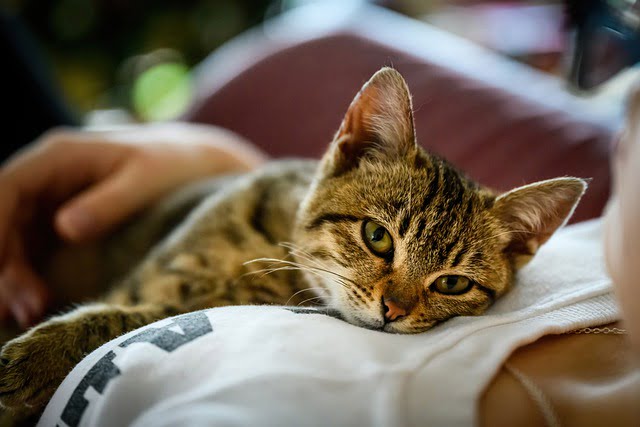10 tips to improve your cat’s diet

10 tips to improve your cat’s diet
Tips on diet basics to help cats live longer and healthier lives
Paying attention to the diet will ensure that fur cats live longer and healthier lives. Healthy nutrition acts as a preventative medicine, saving you a lot of money that you have to spend dealing with diseases and complications. With the following 10 tips, you can make changes that will make a huge difference in improving your kitty’s health.
1. Choose canned food over Kibble
Cats are strictly omnivores, which means they must eat meat to stay healthy. Dry food does not meet their needs as wet food does. Kibble foods tend to be low in animal protein and water, and very high in carbohydrates. Over time, you’ll save money on vet bills if you invest in a quality canned food.
2. Choose a balanced diet
Make sure you know how to read cat food labels. Look for a statement from the Association of American Feed Control Officials (AAFCO) that the food is complete, balanced and meets the nutritional requirements of cats.
3. Caution with homemade foods
If you decide to prepare food for your cat, you should talk to your veterinarian about ensuring a balanced diet. The foods you buy are formulated to carry the essential nutrients for your kitty’s health, and the chance that homemade food will meet all of your cat’s needs is slim. Your vet may suggest vitamins or supplements for a balanced diet.
4. Pay attention to your cat’s special needs
If your feline friend has any health concerns, speak to your vet, who may recommend specific types of foods or supplements needed. You want to make sure your kitty’s condition is managed and kept healthy.
5. Avoid foods that are toxic to cats
You may want to give your furry friend some treats from your plate without realizing that some of these foods are toxic to cats. Make sure to avoid feeding your cat chocolate, caffeine, dairy products, grapes, raisins, onions, garlic, chives, and yeast dough. The Pet Poison Helpline contains a complete list of foods that are poisonous to cats.
6. Feeding quantity and frequency
Cats are omnivores, and in the wild, they need to hunt several times a day to stay healthy. It is important to imitate their natural habits by feeding them small, frequent meals. The amount you feed your cat will depend on its age, size and activity level. Consult your veterinarian to determine your cat’s needs. Don’t leave food out all day to avoid overeating and obesity.
7. Keep your cat at the ideal weight
Obesity can harm your cat in many ways, including increasing the risk of cancer, diabetes, heart disease, high blood pressure, joint disease, and more. Talk to your vet about the best way to keep your cat at a healthy weight.
8. Switch to new foods gradually
Make sure to switch to a new cat food gradually. Any sudden changes in diet may cause an upset stomach and diarrhea. Talk to your vet about safely transitioning to your new kitty’s food menu.
9. Keep your cat hydrated
Cats usually get most of their water from the animals they hunt, so they tend not to drink enough water on their own. A water fountain may encourage your cat to drink more because cats prefer to move the water. Canned food also provides some water for your cat.
10. Find a vet who specializes in cats
Try to find a feline vet to help your furry friend maintain optimal health. At All About Cats Veterinary Hospital, you can count on us to provide the best possible care for your cats. We are more than willing to help you in every way possible when it comes to your cat because that’s all we are about!



